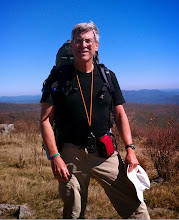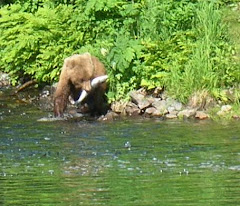
This humble, little plant is used to provide Vinblastine, one of the four drugs I took while dealing with Hodgkin lymphoma in 2002. Now, Vinblastine is a double edged sword. It is very effective against Hodgkin’s disease, and some other cancers, such as testicular, breast, and small cell lung cancer. But is has some really nasty side effects, which I will spare you the details of in the interest of not hearing you scream “TMI”!!!!
Even though the chemical composition of vinblastine is known, and obviously people have learned how to purify it from the plant, we have no idea how to make it artificially. So without this plant, there is no vinblastine. Another toxic alkaloid from this plant, vincristine, has been used to raise the survival rate of acute childhood leukemia from 10% to 90%. At one point in time, this plant was considered an obscure “weed”, and now it is critical to solving multiple types of cancer that were deadly before.
Why I am telling you this? Because every 20 minutes, a species of plant or animal becomes extinct. That is estimated to be 1,000 times the normal extinction rate in our planet’s history, and we are now in the sixth mass extinction period in history. The last of these was the extinction of the dinosaurs 65,000,000 years ago, but this one is caused primarily by humans. Even if we don’t take into account the intrinsic value of biodiversity and other species, what future medical miracles are we eliminating without even being aware of it?
I will leave you with this quote from John Holdren, an environmental scientist from Harvard and Woods Hole, as documented in Thomas Friedman’s excellent book, “Hot, Flat, and Crowded:”
“The biodiversity of the planet is a unique and uniquely valuable library that we have been steadily burning down – one wing at a time – before we have even cataloged all the books, let alone read them all.”




















No comments:
Post a Comment